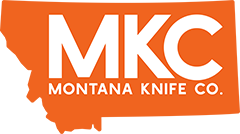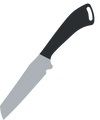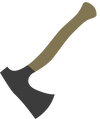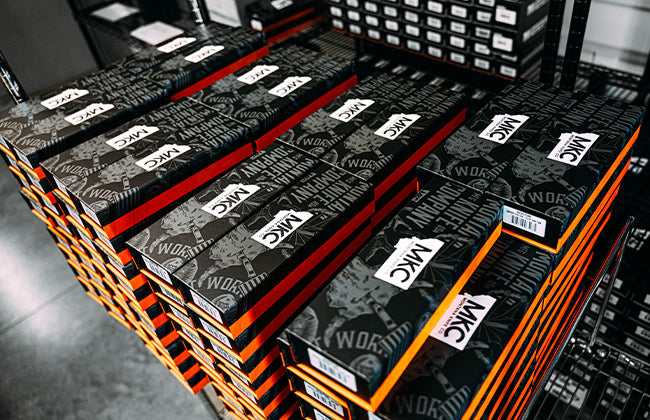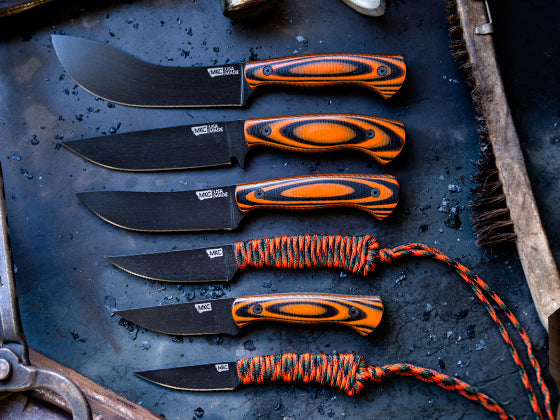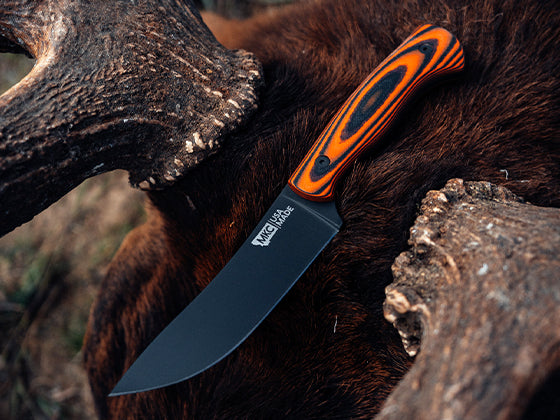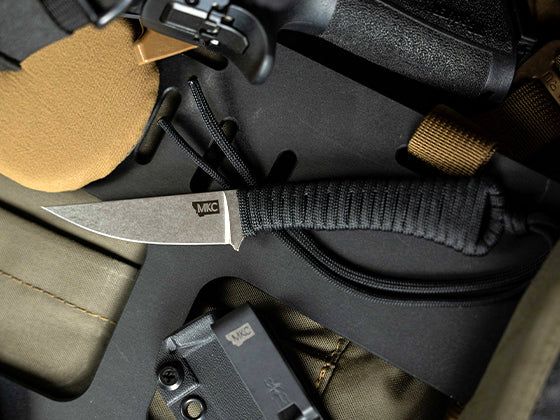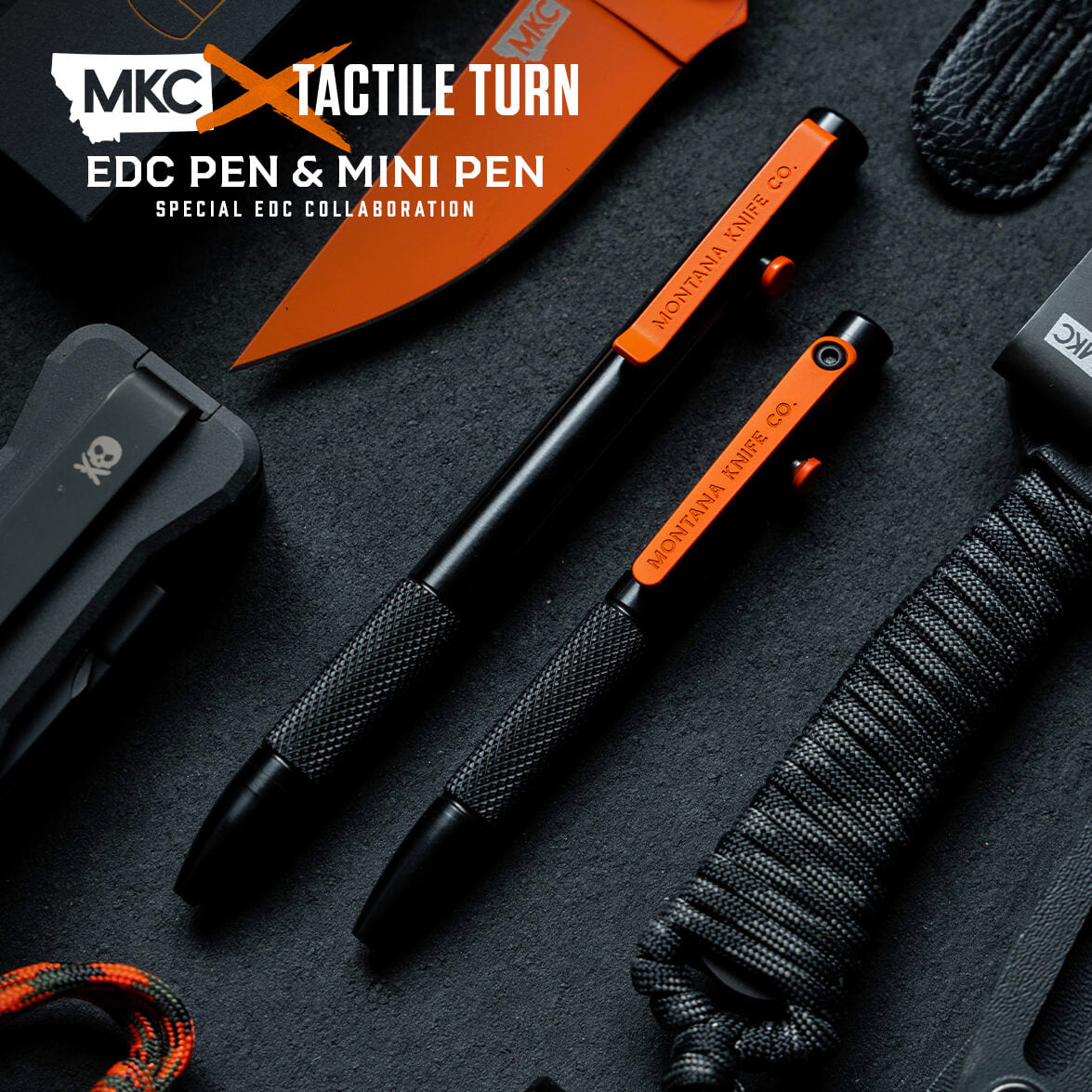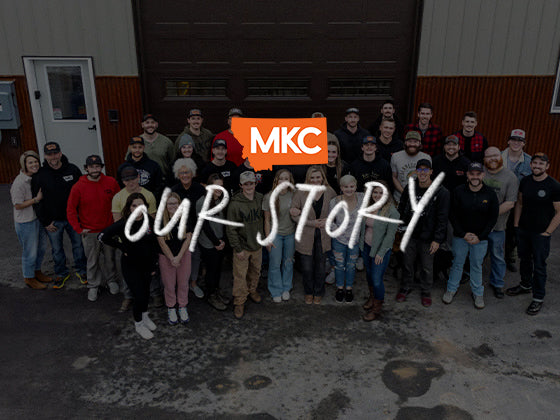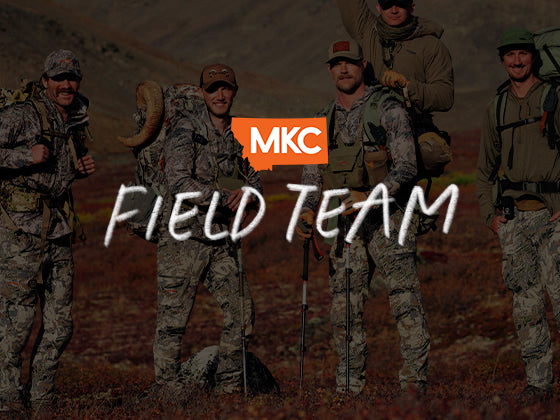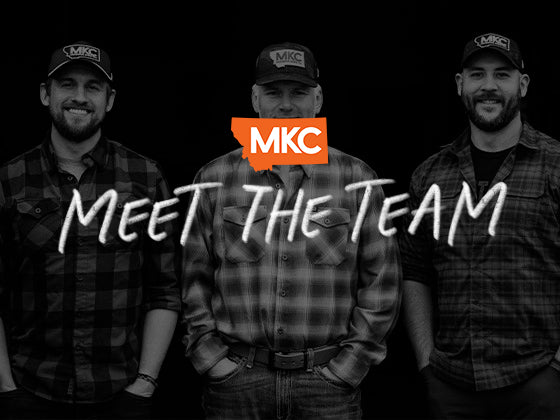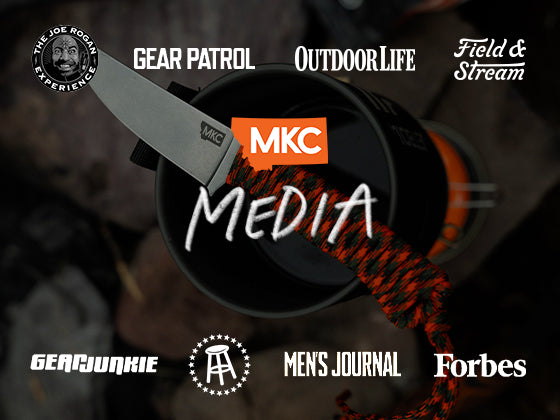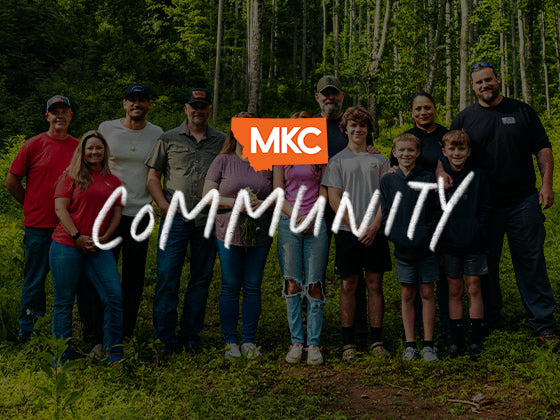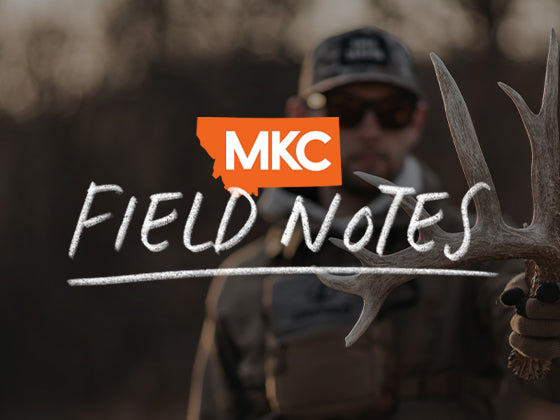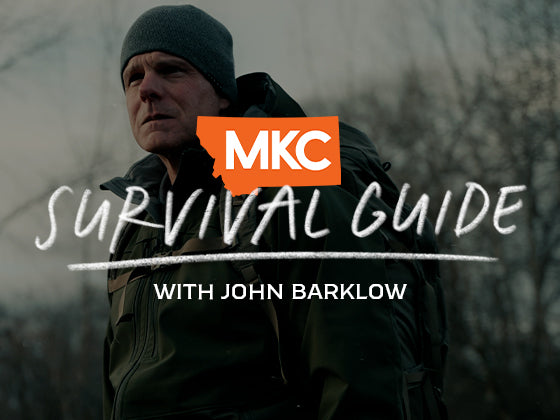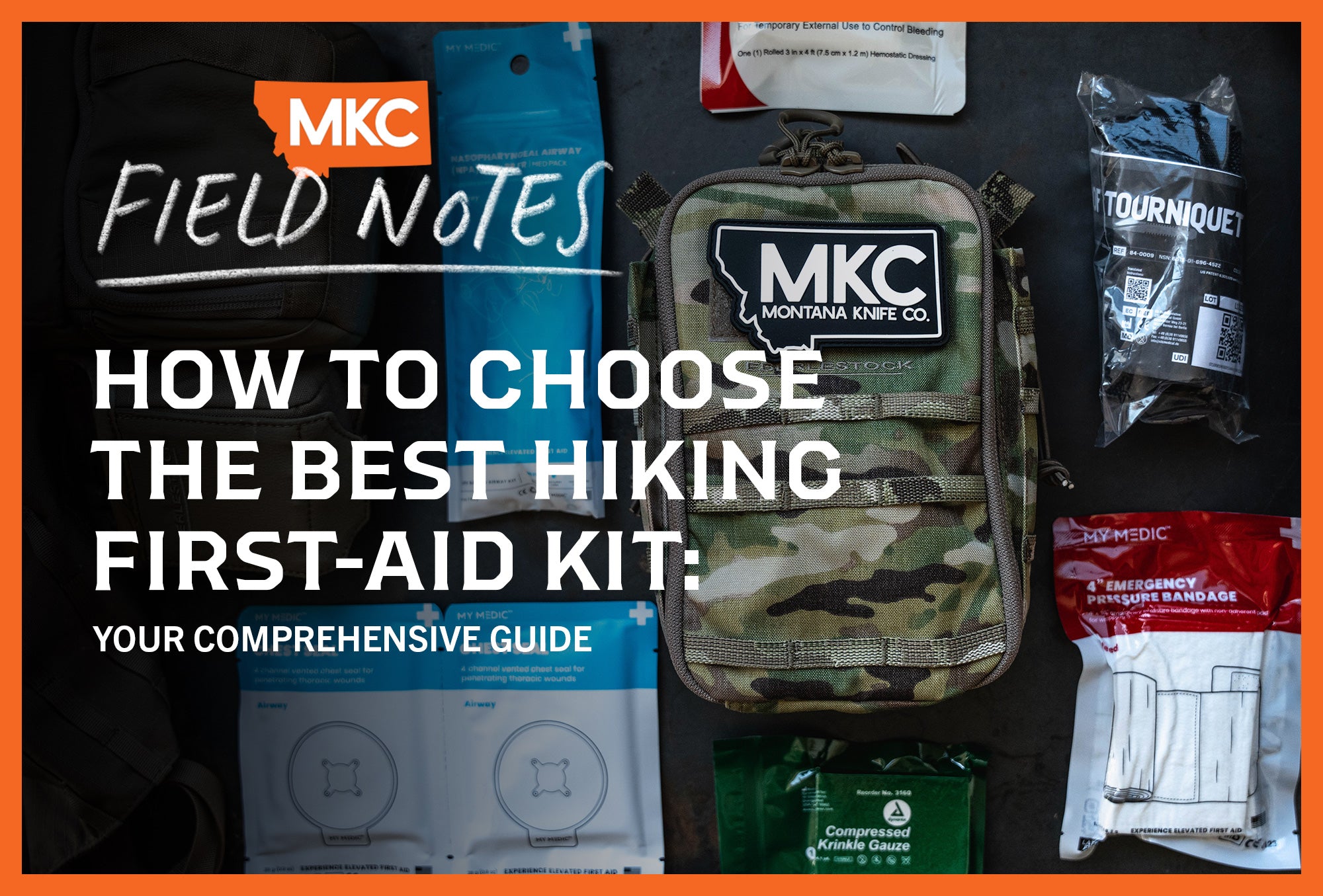In the last few years, Montana Knife Company has grown beyond what I ever could’ve imagined, gaining recognition throughout the hunting community and the country as a premier American-made knife company.
You may think we’re a huge, complicated operation with dozens of employees. In reality, we’re a small group of hunters and fishermen creating tools that help us do what we love.
We design with hunting in mind, and we build reliable tools that last. We’re passionate about making affordable, high-quality knives that serve real working people’s needs.
I’m Josh Smith, MKC’s co-founder and Master Bladesmith, and this is why I started an American-made knife company.
Discovering American Knife Making
I started making knives in the little town of Lincoln, Montana, when I was 11 years old.

For Christmas that year, my parents bought me a blade made by Rick Dunkerley, my Little League baseball coach and an excellent bladesmith. Not long after, Rick gave in to my badgering and invited me to his shop to make knives.
After helping me with my first couple of blades, Rick told me that if I was serious about making knives, I needed my own shop. Even at that young age, I knew I’d found what I wanted to do for the rest of my life.
By saving money from mowing lawns and working for my parents, I bought my first knife grinder and set it up in a corner of my dad’s shop. After I made a mess of the area, my dad decided it was time for me to have my own space.
Dad enclosed a lean-to and set me up with a workbench and an anvil. He made the stations full-sized to keep them functional as I grew, though that meant I had to use a milk crate as a step stool for several years. My parents were always supportive of my knife making, which I appreciate even more now.

I spent countless hours in that little shed, working before and after school and getting increasingly serious about my craft. My school science fair project covered heat treating steel. I’ll never forget that my first customers were two of my teachers, who bought blades for $20 each.
Mastering the Art of Knife Making
At Rick’s encouragement, I joined the American Bladesmith Society at age 12.
After three years as an apprentice, I created a set of blades to take the journeyman bladesmith test in Atlanta, Georgia. The test was rigorous: A single knife had to chop through a one-inch rope, shave hair, and bend 90 degrees without breaking. Then, five blades were presented to a panel of Master Smiths, who would judge them for quality and craftsmanship.
I was elated when I passed the test and became the youngest journeyman knife maker in the world. It was a monumental accomplishment for me, proving to myself and others that I could make knives at a professional level alongside people three to five times my age. I didn’t even have a driver’s license yet.
I continued to learn and practice as much as I could. I would’ve loved to take the Master Smith test when the minimum two-year journeyman period ended, but being a teenager took priority for a while. I focused on school, work, and sports until my second semester at Montana State University, which I spent preparing to take the second and final ABS test.
For this test, the blades I forged had to cut a one-inch rope, chop through a two-by-four, shave hair, and bend 90 degrees. A panel of Master Smiths again judged five other knives for craftsmanship and quality. It was an intense test, but I passed and became the youngest Master Smith in the world. I’ll never forget how honored I felt.

I didn’t realize it then, but I’d only just begun my knife-making journey.
My American-Made Knife Company’s Origins
My dream was to start my own American-made knife company. Knowing that, my mom registered the name “Montana Knife Company” with the state for me.
College didn’t seem like it would take me where I wanted to go, so I worked in excavation and construction for several years. In that time, I got married and moved to Frenchtown, Montana, where I still live today. In Frenchtown, I became a full-time custom knife maker.
Making custom knives one at a time while supporting a family of six was challenging and unpredictable, especially before I could sell my work online. Following the 2008 market crash, I wasn’t sure about the future of high-end custom knife making, so I took a job as a lineman.
Despite my long-held dream of starting an American-made knife company, the timing never seemed quite right to start Montana Knife Company. I didn’t feel ready personally or financially, and a divorce left me caring for four children as a single dad.
There wasn’t much time for knife making. I just had to do what I could to get by and support my kids.
But the dream was still alive. After a few years, I met my now-wife, Jessica, who encouraged me to fully commit to starting Montana Knife Company.
I wasn’t quite ready to quit my day job, but I built some prototypes and took them to an event called WinterStrong in South Carolina. I met a ton of great people at that event, including my future co-founder, Brandon Horoho.
Initially, Brandon helped me create marketing materials and a website for MKC, but he quickly demonstrated just how much he was capable of. In the fall of 2020, I asked him to be my business partner, and we officially launched MKC.
I finally quit my job — which, to her credit, my wife never stopped encouraging me to do — and gave my full time to MKC on December 30, 2020. The process was slow at first, but as we made more knives, the number of orders increased.
When we figured out how to really increase our production capacity, business exploded, and our vision for MKC became a solid reality.
What I Love About MKC
I love that a Master Bladesmith helms MKC.
People in suits run most American-made knife companies, not knife makers with a passion for the craft. These executives may know business, but they have no idea how to make what they’re selling, let alone how to use it.
I’m increasingly impressed with the wide range of knives we offer here and the outstanding people we’ve collaborated with. We have a knife in our lineup for any conceivable purpose, and each one is carefully fashioned with real-world experience at its core. Plus, I never dreamed I’d work with the likes of Meat Eater’s Steve Rinella, the Bearded Butchers, John Dudley of Nock On, and so many others.
I’m proud that we’ve grown our company the old-fashioned way: no debt, just hardworking people who actually use the products they’re selling. MKC is proof that the American dream is alive and well.
The Evolution of Our American-Made Knife Company
While I still consider MKC to be a small American-made knife company, our product line has grown exponentially.
Our lineup started with just a few all-purpose knives. The Speedgoat and Blackfoot are some of our most popular blades, and for good reason. They’re reliable, well-crafted, and made to handle it all.
Since then, we’ve populated our lineup with blades tailor-made for our fans. Skinning knives, bushcraft knives, culinary knives, boning knives, even hatchets — we’ve done it all.
Along the way, we built our website from the ground up, populating a vast bank of guides and blog posts for our users’ enjoyment. Our field notes are all about how to get the most out of your hunts. Now, we have a bank of recipes, courtesy of the MKC team, and a survival guide for our most ambitious outdoor enthusiasts.
Recently, we launched MKC Tactical. Many of us don’t just carry knives on the hunt. We bring our favorite blades with us wherever we go. We crafted our tactical blades for knife owners who prioritize combat and self-defense.
Our team has grown over the years, too. It’s not just Brandon and me anymore. Now, we have hunters in the field, collecting real-world experience and giving us feedback on our knives. Brandon and I also brought on one more executive to help us run MKC: Andrew Oliver, our COO.
If you want to learn more about MKC’s evolution, you can do so here.
The Challenges of Running an American-Made Knife Company
Here in western Montana, we’re not surrounded by industry. It’s challenging to find people with the right background and experience for this kind of work, especially given the increased cost of living.
But Montana is an amazing place, especially for hunters. I grew up on the edge of the Bob Marshall Wilderness, hunting and fishing constantly. We name our MKC knives after Montana’s places, animals, and mountain ranges. We’re sticking around, and we hope to attract others who love this place as much as we do.
Another challenge is our promise to sell only USA-made products. We don’t manufacture knives overseas, and we source as much as possible from the U.S. While it would be easier to outsource our manufacturing, I’m not willing to compromise on that point.
It’s difficult to compete with other knife companies that use cheap labor and materials. We’re not racing to the bottom of the price barrel; we’re not trying to make the cheapest knife to sell at Walmart. We build working knives for working people, and working people expect quality.
On the other hand, sourcing and manufacturing our knives in the U.S. has its own advantages. As many companies experience manufacturing and shipping delays because of overseas supply chain issues, we continue our operations uninterrupted.

Why I Started an American-Made Knife Company
Back when I made custom knives, the blue-collar people I interacted with every day — people just like me — couldn’t afford them. Those knives went for thousands of dollars and were more like expensive art pieces. I loved making them, but they just weren’t practical for the people I knew.
At the same time, I didn’t see any American-made knife companies selling quality blades for actual field use. Instead, they carried knives made with cheap, low-quality materials.
None of these large American-made knife companies made knives with hunting in mind. Hunting was an afterthought. They sold pocketknives or everyday carry knives that had bells and whistles thought up by a designer.
I wanted to start an American-made knife company that built functional, purposeful tools. I wanted to make high-quality, purpose-built blades my loved ones could afford. And that’s what we’ve done.
MKC is unique because we don’t just produce knives. We also use them. We make knives for hunters, and we are hunters.
American Knife Making and Heirlooms
Today’s American knife manufacturers build knives to a price. I’ve even seen American-made knife companies advertise blades you can throw away once they get dull. That bothers me.
We pass down so little now: just knives, guns, artwork, and jewelry. Sadly, today’s knives don’t qualify as heirlooms.
We at Montana Knife Company want to revive that tradition. We want you to pass your knives down to your children and grandchildren. They’re handmade, they work hard, and they’re built to outlast you.
Developments in American Knife Making
When I was 11, if you wanted to learn knife making, you had to find a knife maker willing to teach you in their shop. That’s changed.
Today, if you want to learn knife making, you can jump on YouTube or Instagram and find instructional videos. You can read how-tos or watch TV shows like Forged in Fire. Although I highly recommend picking up books by the old masters if you’re serious, you can find countless hours’ worth of knowledge online to get started.
The way we market knives to customers has also changed. In the past, you’d have to set up a shop or find customers in person. People used to write me snail-mail letters to ask for a knife. We’d correspond back and forth, and it could take months to nail down an order.
Now, if you want to sell your blades and share your work, you can do so online. The internet doesn’t just allow us to sell more knives than we could through manual ordering. It allows us to reach a wider audience than I’d ever have imagined possible a few decades ago.
The Future of Our American-Made Knife Company
We want to grow Montana Knife Company into one of the largest and most respected American-made knife companies in the country. We’ll employ great people and pay them well, and we’ll never ship production overseas (and I don’t say “never” often).
Count on us to keep making the knives you depend on. Whether you keep our blades on your hip or in open boxes in your garage, we (and our knives) aren’t going anywhere.
by Josh Smith, Master Bladesmith and Founder of Montana Knife Company
